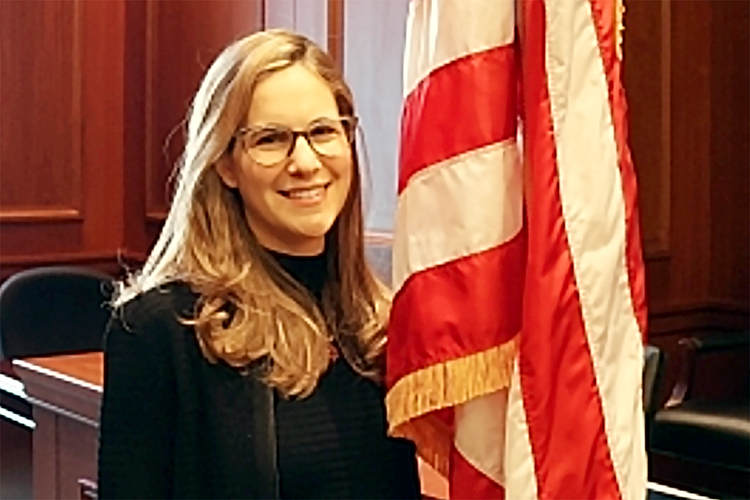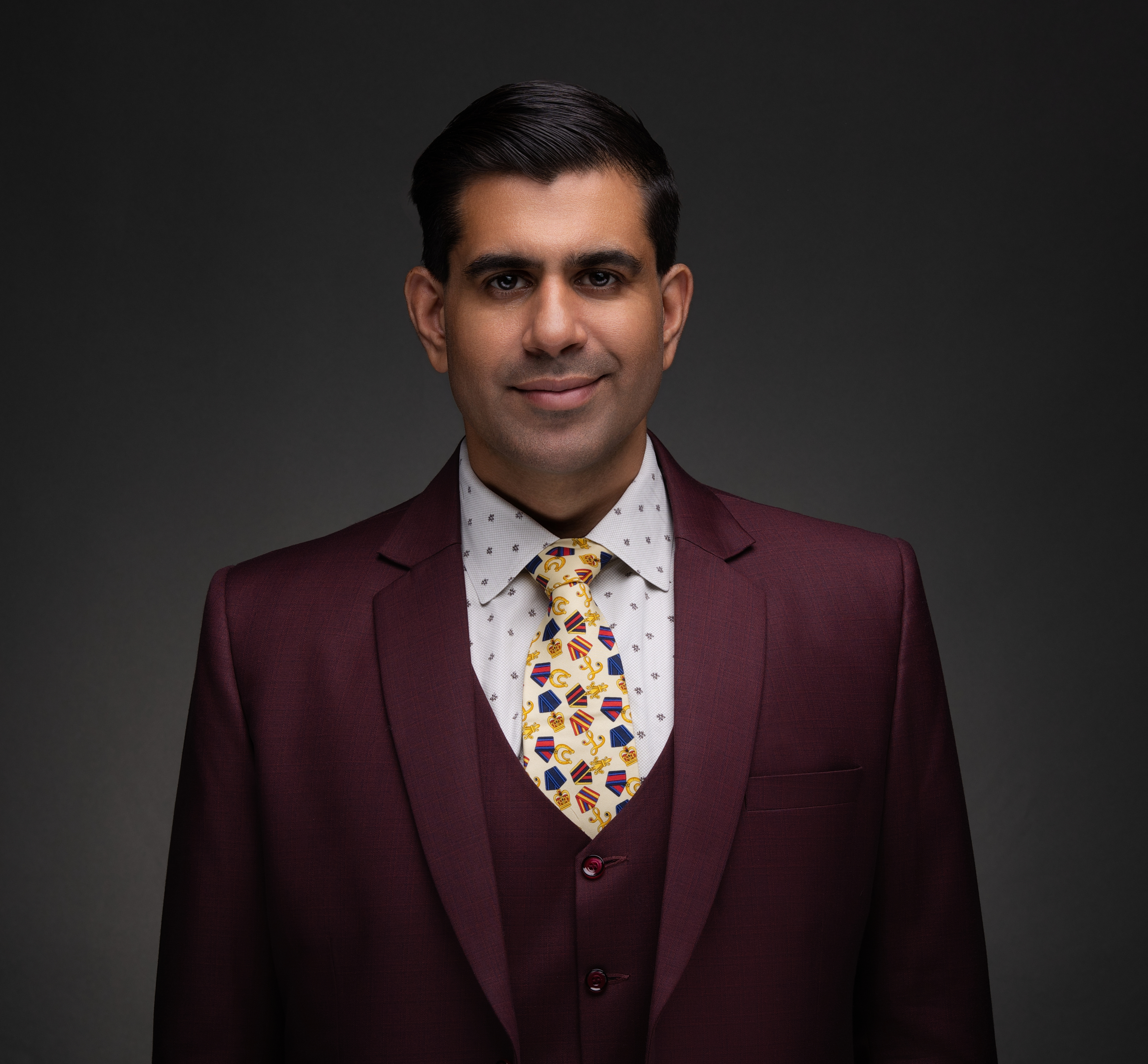Lawyers must act now to save our democracy

ABA President Mary L. Smith. (Photo by Powell Creative Services)
It was not even a full month ago that the Supreme Court issued a decision granting presidents broad immunity for actions taken during their tenure, potentially including those that could undermine the very principles of free and fair elections. The weeks since have seen many significant developments related to this fall’s presidential contest, including the attempt on former President Donald Trump’s life and President Joe Biden’s declining to run for reelection.
With 100 days to go until Election Day, and as we enter a particularly fraught presidential election season, we the people must consider both who and what we’re voting for. Never have presidential powers been a more salient issue than now.
As a lawyer and the president of the American Bar Association, I am deeply concerned by the implications of the Supreme Court’s decision, which comes at a time when we urgently need judicial clarity on the consequences of presidential actions for democratic integrity. The destabilizing forces that coalesced to propel the violence on Jan. 6, 2021, have not vanished—and, in fact, you could say they have metastasized. With evolving threats poised to derail our democracy in the upcoming election, far more than mere political rivalry is on the line. This November, the United States faces a litmus test for the resilience of democratic ideals in America and across the globe—for democracy itself.
In the absence of judicial clarity, what can we do? As lawyers, our duty extends beyond the mere practice of law. We are oath-bound custodians of the Constitution, restoring public trust in our justice system and diligently upholding the rule of law in these turbulent times. Our mission, then, is clear: to actively counter these threats by fortifying our democratic institutions and processes, ensuring that the rule of law remains the bedrock of our society. Here are some specific ways we can do just that:
Fight disinformation
The scourge of disinformation is visible proof that the fingerprints of Jan. 6 still linger. A 2024 poll found that many Americans still believe lies about 2020 election fraud, intensified by artificial intelligence and a retreat in social media vigilance from Big Tech. When citizens are repeatedly exposed to false narratives online, it deepens community divisions, heightens tensions and can prompt defensive or violent responses against perceived threats to their safety or values. This fundamentally undermines democratic processes by distorting public discourse and derailing the informed decision-making crucial to a healthy democracy.
Lawyers can push for transparency and accountability from these tech companies, ensuring that digital platforms do not become conduits for falsehoods that can poison our political discourse. We can also forge partnerships with fact-checking organizations and help ensure accountability for those who deliberately spread election falsehoods.
Secure voting rights
Voting is under siege, raising serious concerns about voter disenfranchisement. Reports of gerrymandering, purging of voting rolls and restrictive legislation present dangerous barriers to voters, particularly those in marginalized communities. While states such as Colorado, Michigan and New York are enacting laws to expand voting access, a wave of restrictive legislation is sweeping through others. Texas, for example, enacted a measure last year allowing the combination of precincts, potentially causing longer wait times at consolidated polling places unequipped to handle the voter concentration. North Carolina has curtailed the period of time for mail-ballot returns and banned ballot drop boxes.
We must not take voter suppression sitting down. Legal advocates can challenge these injustices, lobby for legislation that ensures equitable access to the ballot box and provide pro bono services to protect the rights of every voter. We can also volunteer to serve as nonpartisan poll workers or election observers for local and national elections.
Stop election interference
State-sponsored election interference remains a significant and malicious influence aimed at capitalizing on our societal rifts. A recent intelligence report pinpointed Russia, China and Iran as likely culprits in efforts to meddle with past U.S. elections, a trend expected to continue in the upcoming election.
Lawyers can proactively engage in fortifying our electoral systems, working closely with government and cybersecurity entities to identify and counteract these interference efforts. We can advocate for and assist in crafting laws that bolster the security of our electoral infrastructure and engage in bipartisan efforts to tackle the underlying vulnerabilities in our electoral system.
Rebuild public trust
The Pew Research Center recently recorded that Americans’ faith in government institutions is near its lowest level in seven decades of polling—troubling evidence of the urgent need to restore the integrity and accountability essential to a functioning democracy.
Those of us in law can play a pivotal role in rebuilding this trust by promoting civic education, advocating for judicial independence and serving as examples of integrity and ethical leadership. Participating in and organizing public forums to educate and engage citizens about the significance of the rule of law is a critical step in this direction.
Lawyers are vital defenders of our democracy. The ABA’s Task Force for American Democracy, launched last August, actively addresses the challenges outlined above—fighting disinformation, securing voting rights, stopping election interference and rebuilding public trust—while also promoting civic education, advocating for an independent judiciary and engaging with citizens through listening tours in key states to deepen their understanding of civic duties. Our work over the past year is a comprehensive blueprint for the legal profession and the public, with actionable steps to restore, protect and preserve our democracy and the rule of law.
But our efforts alone are not enough. True change requires every American’s active participation and engagement. Voting is just the start—we must protect that vote, engage respectfully, demand accountability from our leaders and uphold justice and equality. Our democracy thrives on informed citizens critically evaluating information and participating in dialogue.
The task ahead is daunting, but with focused effort and steadfast commitment to our democratic values, we can ensure the election reflects the true will of the people.
As president of the ABA, Mary L. Smith has created the Task Force for American Democracy to address threats to democracy.
This column first appeared in U.S. News & World Report on Sunday.



